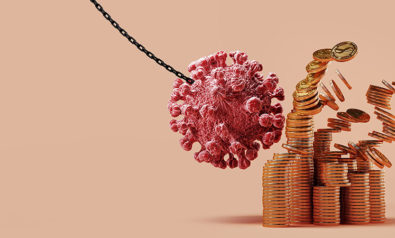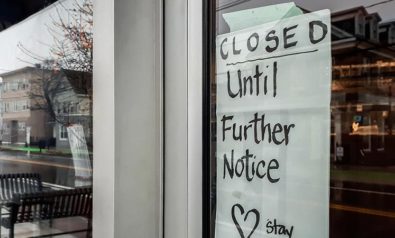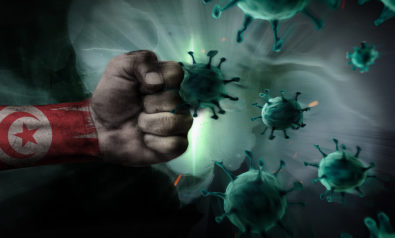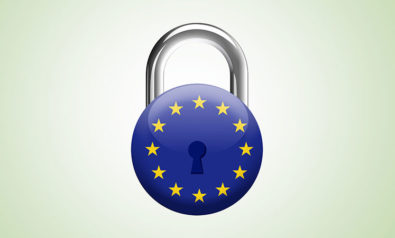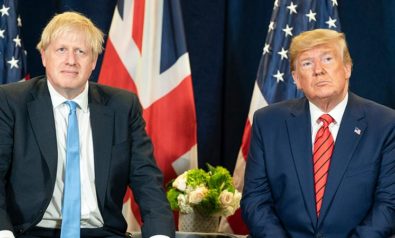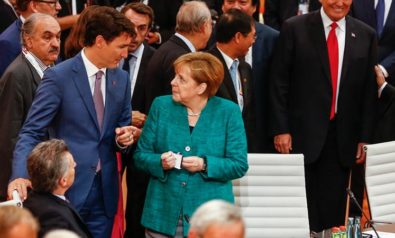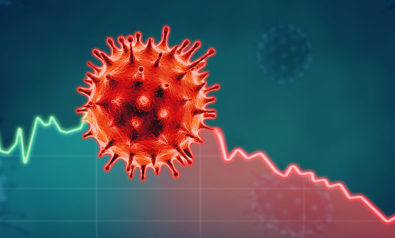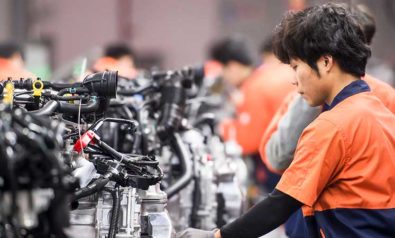The phrase “the new normal” has been around, according to CBS News, since the end of World War I. Its use has escalated since the 2008-09 financial crisis and implies that life will never go back to the way it was, although one hardly notices any changes in the way financial markets do business, let alone the larger economy and society.
Central Europe Tiptoes Into the New World After Coronavirus
If the new normal ends up only describing work habits and infrastructure, then it is actually “normal 2.0,” which is important to understand but disconnected from value propositions we need to engage to recognize the potential of what’s next. What we are seeing in the people side of work and interacting is a need for a “new harmony,” a concept developed by Dr. Ira Kaufman, a digital transformation strategist. In his words, this is “a creative and practical tension between harmonizing the stakeholders’ need for Value, Trust and Empathy and the businesses’ purposeful best practices.”
I believe that a durable, humane, inclusive and not well-defined transformation has been going on for decades. From the common use of global communications technologies and networks to the current widespread unrest in the US, Hong Kong and elsewhere, transformation is both transformative and dysfunctional.
Leadership
The key difference for reaching a better outcome from the current dysfunctional reality is trust in leadership that is both earned and constantly vibrant. From the corner grocer supporting the local community to political leaders who recognize and act on the legitimacy of fear and pain that permeates marginalized citizens, leadership is valued for its risk-taking and empathy, which should not be uncommon qualities.
When leadership is expressed as love, some pause, thinking only of the facile definition of attractiveness, rather than the notion of profound respect that comes from the love of others, of beliefs and of the essence of a shared nature. It emerges, as a reader called J.E. Rash notes in the comments section of Kaufman’s article, from “the core transformation [that] is also reformation, renewal, regeneration.”
In his work on transformation, Kaufman focuses on the nub of the challenge for leadership today, the “increasing level of uncertainty and vulnerability.” In my 50+ years of dealing with US expatriates abroad, their most difficult challenge was ambiguity, whether in terms of how the “other” defined time, decision-making, status, local politics and other factors that affect how relationships and hence transactions are managed successfully. Seldom were they able to empathize with their counterparts, preferring to focus on the “what” of a deal rather than the “who” of the customer/client.
As another reader, Sami Jamil Jadallah, points out, “Business schools must introduce transformation including harmony into curriculum.” This is another challenge and, for Kaufman, there should be collaboration among thought leaders “to redefine business and entrepreneurial education and learning based upon a holistic integrated transformational model.” To begin the process, Dr. Stephen Gomes comments that “the real imperative is the need for a genuine shift in human consciousness and awareness, [otherwise] we are still in danger of falling back into those very same self-destructive [money-first] attitudes and greed that brought us to our present global crisis in the first place.”
As a private-sector adviser, which includes non-governmental entities as well, I agree with Kaufman that the agenda is “the six-step process of Strategic Transformation beginning with reinventing the self; transforming the organizational culture; reimagining the future and then translating that mindset your transformed business model; redesigning your product and service; finally realigning impact to be sustainable globally.” This is ultimately a business proposition — do better to do well.
Today on Rollerblades
In global markets, as the US has “discovered,” being the biggest is not what it used to be as we rely on vulnerable supply chains, unsure access to rare minerals and ingredients, and competitive human competencies. As Jeffrey Tucker, the editorial director for the American Institute for Economic Research (AIER), reminds us, capitalism is “best thought of not as a system but a network of human relationships based on exchange.” For him, “love permeates every aspect of [capitalism’s] operations. It requires love. It rewards love. It elicits love. It lives on love.” This is where we started, a love that is an “uncoerced and mutually regarding” affection.
Trust is the mindset that fuels that affection. Tucker writes: “We come together in trust. We exchange, out of choice. Though nothing has changed about the material world, we have created value and wealth, something we know by reflecting on our inner sense of well-being. It’s an act of love.” It thrives on reciprocity — an expression of that affection is trust. Barry Brownstein, professor emeritus of economics and leadership at the University of Baltimore, contends: “Trust is a habit of mind that evolved under capitalism. Today fear and even disgust are replacing love and trust. Our ability to transcend tribal differences is being frayed, undermining the foundations of a commercial society.”
So, my concern with the new harmony is not altruistic — it is a survival instinct. The new normal, being nothing more than today on rollerblades, is not a viable option. As Brownstein writes, “A coalition is emerging among the untrusting. The coalition transcends ideological grounds. Those who fear their neighbor and those who fear China are joining hands to cheer the destruction of liberty.”
He adds: “We can choose to embrace and enable our true nature. As Marcus Aurelius put it, ‘We were born to work together.’ For a person to believe otherwise is, in the words of Einstein, an ‘optical delusion of his consciousness.’”
Brownstein concludes by saying: “Government is tearing asunder a network of human relationships, a network of exchange fueled by love and trust. For the sake of humanity, by our choices, we must put it back together by our un-coerced and mutual regard for people.” The new harmony is the antidote by refocusing our energies and our passion on reconstructing and reenergizing core values that define humanity as human rather than as transactions.
The views expressed in this article are the author’s own and do not necessarily reflect Fair Observer’s editorial policy.
Support Fair Observer
We rely on your support for our independence, diversity and quality.
For more than 10 years, Fair Observer has been free, fair and independent. No billionaire owns us, no advertisers control us. We are a reader-supported nonprofit. Unlike many other publications, we keep our content free for readers regardless of where they live or whether they can afford to pay. We have no paywalls and no ads.
In the post-truth era of fake news, echo chambers and filter bubbles, we publish a plurality of perspectives from around the world. Anyone can publish with us, but everyone goes through a rigorous editorial process. So, you get fact-checked, well-reasoned content instead of noise.
We publish 2,500+ voices from 90+ countries. We also conduct education and training programs
on subjects ranging from digital media and journalism to writing and critical thinking. This
doesn’t come cheap. Servers, editors, trainers and web developers cost
money.
Please consider supporting us on a regular basis as a recurring donor or a
sustaining member.
Will you support FO’s journalism?
We rely on your support for our independence, diversity and quality.




